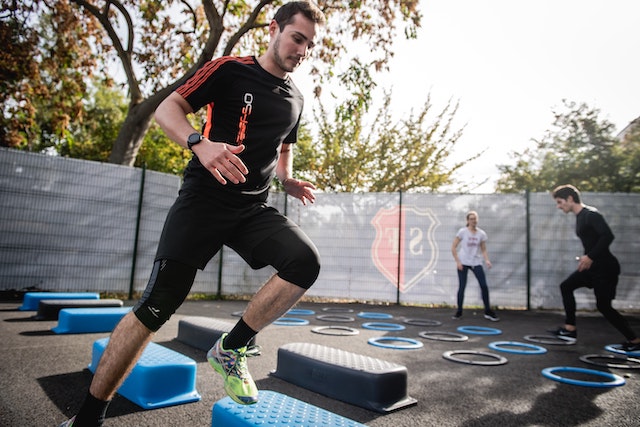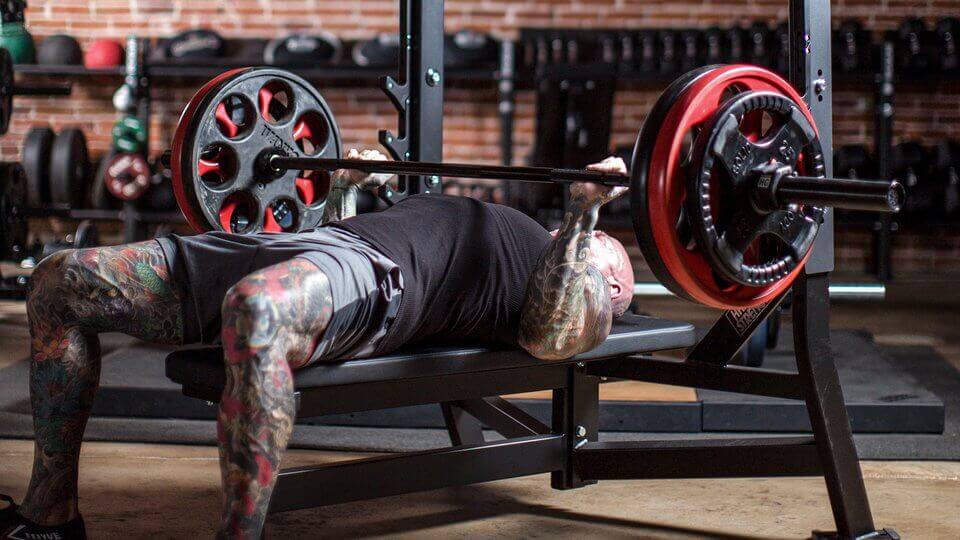The average Bench Press for a 14-year-old is anywhere from 90 lbs to 187 lbs (41kg – 85kg). However, the weight varies from person to person as not everyone is the same. For example, you might be able to bench 75 pounds; however, others may struggle with the same exact weight. One of the biggest concerns is “Injury” when it comes to bench pressing. Therefore, it’s best to keep your ego aside and focus on “Weight”, “Form” and “Reps/Sets” correctly. So….
How much Should a 14-year-old Bench press?
It all comes down to How much you weigh and your level of strength.
Answer: An Average 14-year-old person weighs 112.0 Lbs (50.8 kg). Recommend weight to lift is own body weight. It is mainly because your joint is not stronger, and you’re more likely to get injured. Anywhere from 90 lbs to 187 lbs is recommended. This doesn’t mean you cannot lift more. As we already know, some of us may be stronger and bigger than others, so you need to make sure you lift what is comfortable for you.
- Must read:- Average Dumbbell Curl for 14 year old
- Must read:- Average Deadlift for 14 year old
- Must read:- Average Squats for 14-year-old
Active 14-year-old Weight Class
| Bodyweight | Bench press weight |
| 90-110 lbs (41kg – 50kg) | 88-114lbs (45 kg – 52kg) |
| 110 -150 lbs(50kg – 68kg) | 114 -158lb (52kg – 72kg) |
| 150-200lbs+ (68kg – 90kg+) | 158- 198lbs (72kg – 90kg) |
Non-Active 14-year-old Weight Class
| Bodyweight | Bench press weight |
| 90-110 lbs (41kg – 50kg) | 88- 99lbs(40 kg – 45kg) |
| 110 -150 lbs(50kg – 68kg) | 99-110lbs(45kg – 50kg) |
| 150-200lbs+ (68kg – 90kg+) | 110 -121lbs(50kg – 55kg) |
When performing a heavy bench press, your wrists and elbows joints are likely to get injured if not performed correctly or chasing heavier weights. Therefore, you should add more protection using Wrist wraps and Elbow wraps when bench pressing.
We Recommend These Wrist Straps If You’re Serious About Bench pressing
Also, These Elbow Straps Will Help You Push More When Bench pressing

How to reduce injury when performing the Bench press

Injuries are very likely to occur when bench press. Some of the reasons for injuries are bad/techniques, Heavyweights, overtraining and warmups. The injury could occur on your chest, shoulders, and arms.
- Bad Form/Techniques: When performing a bench press, you need to ensure that your form is good. You will see a lot of people performing the same exercise, but their form is slightly different to others. This is due to bad Form/Techniques. When performing bench press you need to ensure your back is arched, chested is up, gripping the bar evenly, controlled reps, not locking arms and more. (Read more below on How to perform Bench Press)
- Heavy Weights: There is a limit on how heavy you can go when doing the bench press. This is where some people cause injury due to ego lifting. You will see people in the gym lifting weights which are way too heavy for them, and you will be able to see the pain and discomfort. Heavy weight will lead to bad form. Therefore, perform a bench press which weighs medium/heavy for you. For example, if you can bench 40 kg with 12 reps then increase benching weight slightly rather than super heavyweight. Remember, training is a long-term investment so you need to make sure you can lift it without getting injured.
- Overtraining: Training too often can cause injuries to your muscle group and joints as you need to allow your muscle to repair. Give yourself some recovery time if you have discomfort, continuous pain, or illness on your forearms. Take a few days off, Rest. Put some ice on your forearms as it will reduce the swelling and the pain. If the pain is still there, then seek advice from health professionals.
- Warmups: Warmups are important as they will help prevent any pulling muscles/injuries. There are some warm exercises you can perform before doing bench press as it will let your chest muscle get ready for heavier sets. Personally, for my warmups, I like to do lightweight with lots of reps (empty bar and 25 reps).
Injuries can be prevented by performing the workout correctly, doing the right number of reps and set, lifting a weight that is too heavy for you and wearing the right protection wear. Make sure you keep your wrist and forearm protected as it’s required for all exercises which include push and pull.
How to Perform Bench Press? (Correctly)

1) Wear your Wrist and Elbow wraps before performing Bench Press. Protect yourself.
2) Get a Spotter if required.
3) Lay flat on the Bench press where the bar is aligned to your chin.
4) Position your hand shoulder width from the bar and grip it tightly with your fingers.
5) Push your chest out by arching your back outwards (There should be a gap between your lower back and bench)
6) Perform the Press.
7) Control the weight by bringing the bar to your lower chest and up at a medium pace. (Don’t lock your hand; Keep the momentum going)
8) Perform the right number of sets and reps.
I would recommend you lift heavy on the bench press. However, Take it slow. Build your way up. Lifting heavy weights does not happen overnight. You must put in all the hard work and gradually move one step at a time. An example of this could be bench pressing lighter weight with high reps and focusing on the movements and form. Over time, Increase the weight slowly when you’re comfortable. Remember! This is no racetrack; it’s a marathon.
How to increase your bench press?

There are many ways to increase your bench press which are:
Healthy Diet: Diet is the most important part when it comes to increasing your bench press. 70% is diet and 30% is training. Make sure to eat a balanced diet with enough protein and carbs. This is because those meals will help you grow muscle and that will help you increase the bench press. Best way to ensure that you eating enough food is by tracking your macros and calories throughout. Also, avoid bench pressing on an empty stomach, you need nutrients/energy in your body to perform a bench press. Without it, you won’t be at your best level.
Rest: Resting is also important but lots of people don’t seem to rest their bodies and end up with injuries. You need to allow your body to rest up after finishing your training session. The reason for this is that while training/bench pressing your chest muscle is broken down and you need to let the muscle recover, in order for them to grow bigger.
Workout plan: Having a workout plan will always help you increase your bench press over time. This is because you will have the number of sets and reps, you’re working towards depending on your goal. So create a workout plan so many 12 reps with a medium weight and increase the weight over time.



